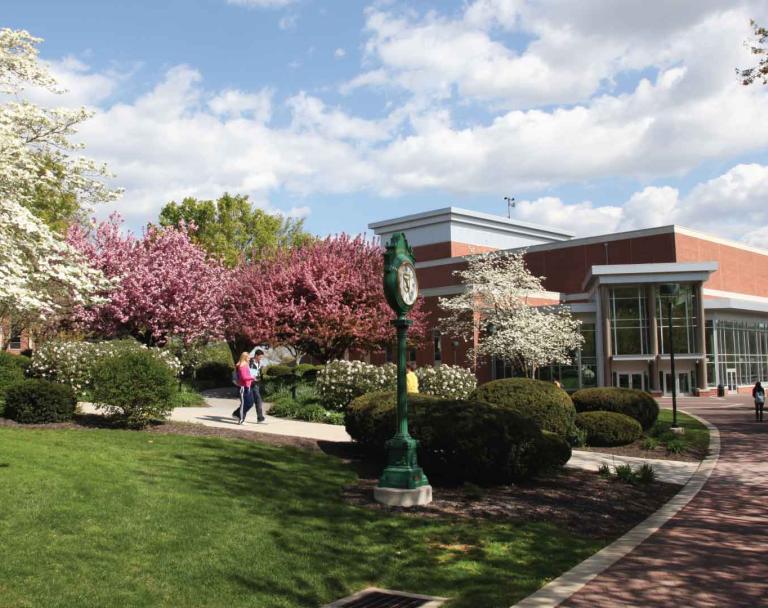Designed for Action: Student Helps To Detect COVID RNA in Campus Wastewater

Designed for Action: Student Helps to Detect COVID RNA in Campus Wastewater
June 08, 2022At York College, students aren’t just reading textbooks and listening to lectures. They’re working on community projects, solving real-world problems, and using their education to affect change. In Designed for Action, we meet the students who are making an impact outside the classroom.
Biology major Caleb Keller ‘22 presented his research, “The Detection of SARS-Cov-2 RNA in Wastewater to Estimate COVID-19 Occurrence at York College of Pennsylvania” at the 2022 Undergraduate Research Showcase.
His work involved sampling wastewater around all three York College of Pennsylvania campuses (West, Main, and North). “SARS-CoV-2 is the virus that causes the disease COVID-19. Virus RNA is excreted into the stool of infected individuals, so Dr. [Meda] Higa and I were able to isolate SARS-CoV-2 RNA in wastewater samples to detect COVID-19 presence in our college community,” he says.
According to Keller, this method can be used in the future to detect viruses present at the College. He wanted to complete this research due to his keen interest in virology.
“Although this research may be regarded as “dirty” work, it was important that it was performed, because there was no access to COVID-19 detection methods during the beginning of the pandemic,” he says.
Upon graduation, Keller would like to work in healthcare. He sees disease prevention as being a big part of his future career. “Being able to implement wastewater-based epidemiology into cities would help hospitals to prepare for the next disease surge.”
Referring to his work, he was surprised that he did not detect influenza on campus. However, he partly expected it since it was during a time of social distancing and mask wearing.
“I was also surprised at how heavy manhole covers are!”
With his research, Keller encountered some challenges. Starting without a clear hypothesis, he asked the question, “Can we do this?” Extra steps had to be taken in order to make sure the RNA did not degrade, but with this he found improvements to his protocol.
Even through the challenges, he was able to achieve what he set out to do and is proud of that. “We tried to provide the College with a protocol to use for future disease outbreaks, and we did.”
Keller credits all of his Biology courses and Dr. Higa for preparing him for his research.
“Caleb submitted an abstract to the American Society for Microbiology and was accepted to present his research at the annual Microbe conference held in Washington, D.C., in June,” says Dr. Higa.
Apart from his community research, Keller serves as a Resident Assistant (RA) and is a member of Phi Sigma Pi National Honor Fraternity, Alpha Chi National Honor Society, and TriBeta National Biological Honor Society. He also works in drug/alcohol rehabilitation as a Behavioral Health Technician.
In the future, he plans to apply to medical school, and expresses interest in becoming a nurse anesthesiologist, physician assistant, or earning a Ph.D. “No matter what, I would love to work in healthcare or research.”
Categories
